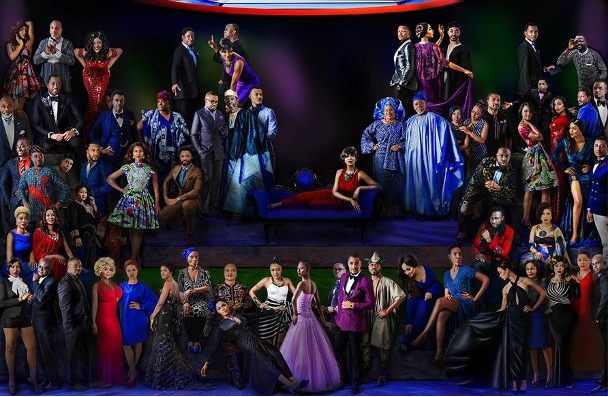Though Africa has always been a land of creativity, a source of inspiration for designers, musicians, painters ... from around the world, it accounts for only 5% of the global market for creative industries valued at 2.4 billion dollars. To transform its potential into a point of growth, added value and jobs for its youth, a whole ecosystem must be built. From now on, everyone is working on it: States, donors, banks, etc. This is a sign of a real boom in the sector, while the Covid-19 crisis is pushing its players to digitalize.
Creative and cultural industries play a central role in digital transformation
Hence the UN initiative that has declared 2021 as the year of the creative economy. "Creative economy to have its year in the sun in 2021", announces the Organization which intends to contribute to the promotion of a sector considered strategic in search of sustainable development in this post-coronavirus world. "The creative industries are essential to the Agenda for Sustainable Development. They stimulate innovation and promote economic diversification," says Deputy Secretary-General of UNCTAD, Isabelle DURANT. "They are an important driver for the development of the services sector, sharpen entrepreneurship and contribute to cultural diversity".
The creative and cultural industries (CCIs) play a central role in the digital transformation taking place globally, particularly in Africa. However, the Covid-19 hit these industries hard, employing more than 30 million people worldwide, mostly young people. In 2020, it is estimated that the cancellation of public performances has cost authors about 30% of their royalties. The global film industry has lost $7 billion in revenue (UNCTAD data).
At the African level, the situation is even more critical. Financial losses in Africa's cultural and creative industries in the second quarter of 2020 vary considerably from country to country: between US$134,360 for Uganda and US$1.49 billion for South Africa. The most affected sector is the performing arts sector - such as music, dance, theater and live events, due to the ban on gatherings during the pandemic. Hence the urgency to support artists... especially by inviting them to digitalize.
Yet, locked down and deprived of their usual hobbies, many people have embarked on creative hobbies, read, devoured series and films, listened to concerts online ... helping to support the creative economy via digital, especially with the dissemination of online content, and which should reach its peak in 2021, says the UN.

"The creative industries can be powerful engines for more equitable, sustainable and inclusive growth strategies for African economies"
However, gaps that remain in this pan-African creative ecosystem have yet to be filled. Copyright protection - for a purchased Nollywood production, 9 are pirated -; professionalization of the sectors and creation of training institutes in key sectors (fashion, audiovisual production, graphic design and video games, crafts, plastic arts ...); mobilization of funding, especially private... That process is clearly underway.
Alongside the UN, UNESCO, OIF, ECOWAS, AU, the States are working on it. Nigeria has set up a fund to facilitate Nollywood productions, in Senegal and Cote d'Ivoire, support funds for the film industry have also been set up. The government of Cape Verde has created an innovative cultural bank, "Fonds Autonome d'Appui à la Culture" (FAAC), which takes into account the needs and local realities of the cultural sector through the establishment of a "cluster" of creative industries and the launch of three national dissemination networks (crafts, arts and museums).
There are banks too, including Afreximbank, which in January 2020 set up a $500 million fund dedicated to creative entrepreneurs. "Creative industries can be powerful engines for more equitable, sustainable and inclusive growth strategies for African economies," said Benedict ORAMAH, then president of Afreximbank. He, however, deplored that "due to under-investment in the creative and cultural industries, Africa is largely absent from the global market of ideas, values and aesthetics conveyed by music, theater, literature, film and television.
However, taking the example of the "astronomical growth of Egypt's creative exports over the last decade" and the growing importance of the Nollywood industry which has prompted the Nigerian government, in its economic recovery and growth plan, to forecast $1 billion in export earnings from this industry, ORAMAH assures: "Today, change has arrived". With the commencing of the African Continental Free Trade Area (AfCFTA) and the start of trade, Africa will eliminate borders and a single market for creative products will emerge.





